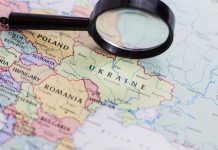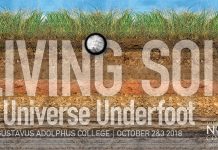Here I’m about to talk to you about the frozen tundra and you’re sporting a tan. Where have you been?
Florida. Around Naples. Mary [Ludington, Kling’s partner] has family with a condo on the water. There’s a lot of Minnesota—and Wisconsin—people there. Every year I lose a bit of enthusiasm for winter. Those big snows build camaraderie, but sometimes you need to go where life is easier, you know? Even flying in, coming into the airport here, going over all that snow, it really blew my mind this time more than ever. I can’t believe there’s all of a sudden this city in the middle of desolate snow.
You grew up in Osseo, which I imagine felt a long ways from the Twin Cities back in the 1960s?
At that time, it really did. We went to church in Minneapolis and it would take us an hour and a half to get there. A lot of windy roads.
Would you come into the city often?
We only came in for church, but we literally never missed it. We went to First Christian and would plow our way in if we had to. And then, because I went to Gustavus, I didn’t spend that much time here until I graduated and lived right in Uptown in the ’70s.
Did you go to many plays as a kid?
Our school went to the Guthrie on field trips. And I do remember, in the 1970s, this vibrant theater scene starting to take off. I got involved with the Playwright’s Center after college. And on my softball team was August Wilson. In fact, a great portion of the future of American theater was on my team. I didn’t care if they could write, I just wanted them to hit. Believe me, the other teams were drooling when they realized they were about to play playwrights. I can kinda look back now and see that their writing styles came out in the way they played. August could hit it over the fence—he could clock it.
What did you think of Minneapolis then?
The tallest building was still the Foshay Tower, and they were trying to gussy up the city because everyone was moving to the suburbs. It was an awkward phase for Minneapolis. I really lament some of the buildings they tore down—amazing buildings. They went a bit overboard.
And St. Paul?
Like most people in Minneapolis then, chances were better that you would go to Europe than to the other city. It’s like, why? And yet it’s such a different feel. The first play that got me on the map was 21A, named for the bus route to the Chimera Theater, which is now the History Theatre.
Your new play, opening at the History Theatre on March 12, is A Tale of Twin Cities, in which you recount the history of Minneapolis and St. Paul. How are the cities different to you?
There’s a big truth in the fact that St. Paul is the last city of the east and Minneapolis is the first city of the west. St. Paul does feel tied to the east in its strong blue-collar way and Minneapolis has that elbow room, that folly of youth. f each city, besides the irish, there was a large Italian community, a very different group of people that helped form each town. They really do have the whole deal with the gangster. I don’t care how close I live to these guys, I’m never going to understand the Vulcans. What’s the deal?
Minnesota has this unusual divide with the Twin Cities and then everywhere else being called “outstate”—is there still a pretty distinct difference between Twin Citians and the rest of the state or do Twin Citians just like to think so?
It’s convenient to think so. A few years ago, I went on tour with the Guthrie during a particularly heated period of political polarization. And I definitely have political views and I wondered what trouble I was going to get into. Not only did I not get into trouble, I found we’re a lot closer than we pretend to be. I hear people spout the differences, but person to person that disappears pretty fast.
There are still a lot of people, no matter how much the Cities distinguish themselves, who consider this flyover country. How do you respond to that assessment?
It’s their loss. And there’s something wonderful about it remaining a secret. Once the secret’s out, we’re goners. The peorpty values will go up and I’ll have neighbors I don’t know about.
I’m practically obligated to put you on the spot—and you’re practically obligated to wiggle your way out of it: Minneapolis or St. Paul, which do you prefer?
Depends on what time it is. There are times when only St. Paul will do, and times when you need to get where it’s going on in Minneapolis. Happy hour, that’s a head-scratcher. The grass is always greener in the other city, it seems. The snow is always whiter.






